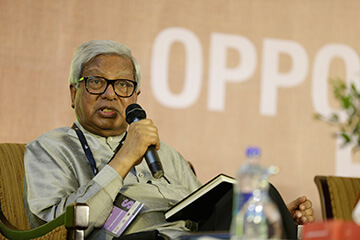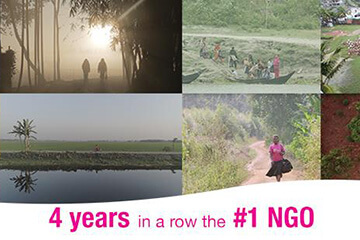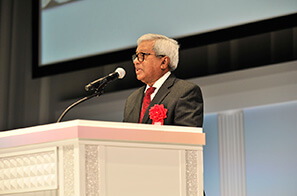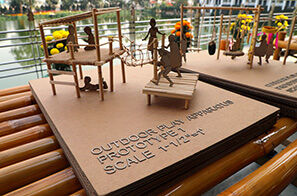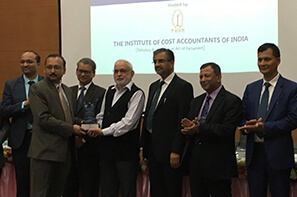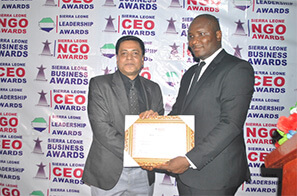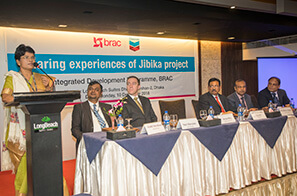
News (832)
Youth should focus on climate change for a sustainable future: Sir Fazle

Today’s youth should be very concerned about climate change because it will heavily impact their future, said Sir Fazle Hasan Abed, founder and chairperson of the world’s largest non-governmental organisation BRAC.
“Unless we change human behaviour in terms of consumption of resources, the future will not be sustainable. I would like to see more youth involvement with issues relating to climate change. Sustainable development is the key,” he added.
Sir Fazle Hasan Abed made the remarks while speaking at the final day of Frugal Innovation Forum held at BRAC CDM in Savar, on Monday (4 March 2019). BRAC organised the forum with the theme: “Scaling opportunities for youth.”
“The youth should understand the distinctions between government and policy and play a more engaging role in policymaking,” said Radwan Mujib Siddiq, trustee of Centre for Research and Information (CRI), while speaking at a session on how to increase youth engagement in different spheres of the society.
During a debate session, Dr Debapriya Bhattacharya, honorary fellow of Centre for Policy Dialogue (CPD), said: “If you look at the issues we see and the initiatives we take, there are noble initiatives. But, at the end of the day, governance is the major issue beyond which, you will not be able to solve the problems. You will have to really come out and work.”
Frugal Innovation Forum is a platform for leaders from the Global South to connect and explore solutions to the world’s toughest challenges that features development practitioners and funders, young changemakers and innovators to collaborate for impact at scale.
Asif Saleh, senior director of BRAC and one of the key organisers of the forum, said: “We are talking about the future of jobs as youth problems are not limited to poverty anymore, it’s about security as well. This forum is about real models of what is actually happening and which model is applicable.”
The conference kick-started with a day-long field visit to give the participants an exclusive experience of frugal innovations in Bangladesh, followed by two days of intense debates and plenaries on disruptive models and solutions. The discussions, workshops and plenaries focused on: 21st century skills; impact of technology on youth; and youth on the move.
NGO Advisor's Global Ranking: BRAC named world's number one NGO
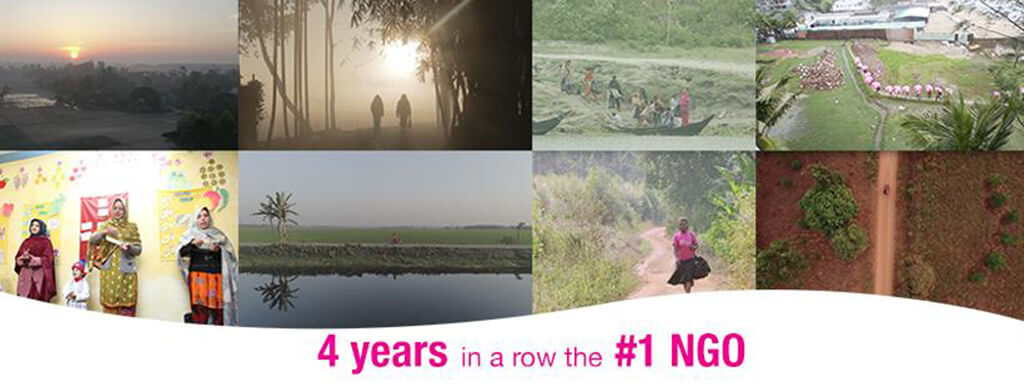
BRAC, the largest non-governmental organisation in the world and global leader in developing cost-effective, evidence-based programmes in conflict-prone and post-disaster settings, has been announced the world’s number one NGO of 2019 by NGO Advisor, an independent media organisation based in Geneva.
BRAC retained the top spot for the fourth year in a row in part due to its leadership of the Rohingya refugee crisis, innovative new partnerships, and the continued scale of its reach.
"The 2019 list reflects the many changes in the sector in the past year, with a number of new organisations appearing for the first time,” said Jean-Christophe Nothias, chairman of NGO Advisor. “On the top seat, BRAC not only preserved its position, but improved on several key criteria, leveraging its competitive mix of long-term vision and resilience in an ever-changing international landscape.”
BRAC Founder and Chairman Sir Fazle Hasan Abed said: “I am delighted to learn that BRAC has again been ranked at the top among international NGOs. I congratulate our colleagues and partners whose dedicated work to fulfil our mission has helped us to achieve this unique distinction.”
NGO Advisor commits to highlighting innovation, impact, and governance in the non-profit sector. Its Top 500 NGOs of the World rankings are based on three pillars: innovation, impact and sustainability, with a special focus on organisational governance. It evaluates hundreds of NGOs against this criteria and ranks them using a robust methodology.
“This ranking belongs to the entire BRAC family across the world. The strength of this organisation, for 47 years, comes from the people we work for, and the local, national and global government and non-government development partners we work with. We share this achievement with all of our partners in this journey. We will continue to strive until the result of progress reaches equitably to every single individual,” said Dr. Muhammad Musa, Executive Director of BRAC Bangladesh.
According to NGO Advisor, this achievement has to do, among other noticeable successes, with BRAC’s leadership regarding the Rohingya refugee crisis, its pioneering new partnerships, and the continued professionalism of its ever-growing team.
“BRAC works with people living in situations of inequality and disadvantaged communities around the world. We develop proven approaches to address poverty and empower vulnerable people at scale, and bring our programmes to where they are most needed,” said Faruque Ahmed, Executive Director of BRAC International.
The assessments for the ranking draw on publicly available information – including financial, human resources, governance, and marketing and communications data – and consider any not-for-profit or public-interest organisation that is active at the local, national, or international level.
In this year’s rankings, BRAC is joined by NGOs at the vanguard of the international development sector, with Médecins Sans Frontières, also known as Doctors Without Borders; the Danish Refugee Council; Open Society Foundations; and Mercy Corps in the top five.
Professor Mohammad Tamim New Pro-VC of BRAC University
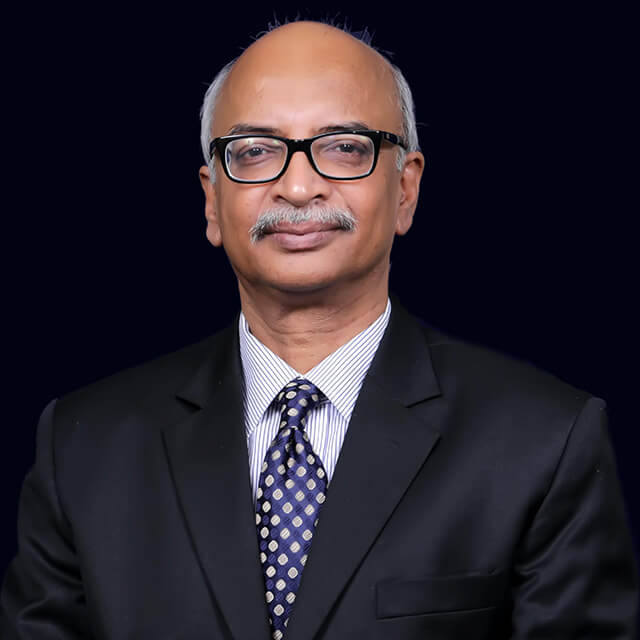
Professor Mohammad Tamim has recently joined BRAC University as its new pro vice-chancellor. He has more than 30 years of experience of university teaching, research and administration as well as both the government and private sectors. He has also led many joint projects of overseas universities and multilateral aid agencies.
Professor Tamim's spectacular career includes significant contributions in the field of energy policy and planning. He had served as a consultant for different projects of international agencies such as World Bank, JICA and USAID. He was also special assistant to the chief adviser of the caretaker government of Bangladesh in 2007-2008 with responsibility for the ministry of power, energy and mineral resources. He has significantly contributed in policy formulation and planning and implementation of the electricity and fuel sector.
Before joining BRAC University, he was a professor at the department of petroleum and mineral resources engineering department in Bangladesh University of Engineering and Technology (BUET).
Professor Tamim received his PhD in petroleum engineering from the University of Alberta, Edmonton, Canada. He had obtained his master's degree in mechanical engineering from the Indian Institute of Technology (IIT), Madras, India, and did his bachelor's degree in the same subject from BUET.
Partnership agreement was signed between BRAC Probashbandhu Limited and Flight Expert

On Tuesday 12th February 2019, a service delivery partnership agreement was signed between BRAC Probashbandhu Limited and Flight Expert. It represents an unprecedented Air Ticketing and related service delivery agreement for the migrant workers of Bangladesh and customers of BRAC Probashbandhu Limited.
BRAC Probashbandhu Limited, a social enterprise of BRAC established to ensure safe, skilled, low cost and middleman free migration from Bangladesh. It has been striving to ensure responsible recruitment of Bangladeshi workers. It started a pilot with 11 offices in 3 districts and have served 7,000 migrant customers, providing low cost migration services ranging from language training (including mobile app) to technical skills training in collaboration with 30 training centers of BRAC institute of Skills development (BiSD) and other social enterprises of BRAC.
Flight expert, the first ever online travel agency (OTA) of Bangladesh provides ticketing and travel solutions to thousands of customers since its inception in 2016 aiming to give people the ease of booking local & international flights or reserve hotels from online, all at once. Flight Expert have listings of more than 250,000 hotels and over 650 airlines. By ensuring the quality services, continuous innovation & progression, flight expert successfully reached out to people over internet & smartphones. Now it is regarded as one of the best OTAs in Bangladesh.
'This partnership will involve Flight Expert’s consortium of Airlines and Hotel chains to ensure online ticketing and travel support to BRAC customers at their doorsteps. It is opening a new horizon to connect rural to urban digitally. This partnership is bringing the dream to reality of present government. At successful implementation of this agreement may result into farther extension and broadening to all other enterprises and entities of BRAC. Both the organizations will play a continued role in service to reach out all over the country.
Mr. Asif Saleh Senior Director, BRAC and BRAC International & managing director BPL signed and quoted, “We are planning and working to ensure safe, orderly and regular migration from Bangladesh at affordable cost.” This stride of BRAC proves to provide more supports to its target groups digitally at possible all corners of Bangladesh and gradually in other countries of BRAC services.
Mr M.A. Rashid Shah Shamrat, president of Flight Expert signed and quoted, “We are always positive towards new challenges and happy to solve the problems. Hope this partnership will come as a good help to the people throughout Bangladesh and abroad”.
The signing ceremony was witnessed by officials of BRAC and Flight Expert.
Professor Vincent Chang joins as new VC of BRAC University

Professor Vincent Chang has joined BRAC University as the vice chancellor on February 11, 2019.
Professor Vincent Chang has more than thirty years of experience in university teaching, research and administration in different capacities. He has recognised success in higher education, finance, economics, and engineering in diverse environments, including academia, Fortune 500’s, startups, Wall Street, and Silicon Valley and has significant international experience in the US, Europe, the Greater China, East Asia, and the Middle East.
Before BRAC University, Professor Chang was the inaugural chair for Institutional Development and a professor at the Practices of Management Economics in The Chinese University of Hong Kong, Shenzhen, China.
He has been the founding president and planning director in the University of Business Technology (by Virginia Tech), Muscat, Oman. He has also served in different positions in Massachusetts Institute of Technology (MIT) and Federal Reserve Board, Washington, DC. He has further contributed at leading positions in ECapital Financial, Santa Monica, California; General Bank in L.A, California; J.P. Morgan, New York, London and Singapore; and McKinsey & Co., Hong Kong and Greater China.
Professor Chang has obtained his first PhD in electrical engineering and computer science from University of California at Berkeley and second PhD in economics from Massachusetts Institute of Technology (MIT), Cambridge, Massachusetts. He has obtained his master's degree in public administration from Harvard University Kennedy School of Government, Cambridge, Massachusetts, and MBA from Yale University School of Management, New Haven, Connecticut. His master's degree and bachelor's degree in electrical engineering are from National Taiwan University, Taipei, Taiwan.
Sir Fazle at the 60th anniversary of Kumon

BRAC founder and chairperson Sir Fazle Hasan Abed said BRAC will expand the Kumon method in Bangladesh, for children to be able to excel in mathematics. He was speaking as the chief guest at the 60th founding anniversary of Kumon, a specialised institution for teaching maths and language, in Tokyo.
Kumon Institute of Education organised the event at the Pacifico Yokohama Exhibition Hall in Tokyo on Monday (11 February 2019), attended by Kumon instructors and alumni from around the world. Organisers said the programme was themed upon global broadening, evolving and deepening of learning, and circulation of knowledge.
In 1958, Japanese teacher Toru Kumon invented a method for his son to learn maths and language in a fun way, which, after replicating across Japan, spread across the world. Today, Kumon learning centres are active in as many as 50 countries including Bangladesh, creating better learning opportunity for millions of children.
Having congratulated Kumon and its staff on the occasion, Sir Fazle said, “What started as a father’s initiative to help his son learn maths, has now become a worldwide movement to strengthen skills in maths and reading among millions of children in Japan and other countries around the world, using a structured and individualised approach.
"In 2013, Lady Abed and I met the president of Kumon and his team in Tokyo. At that meeting, he expressed an interest in working with BRAC to test out the Kumon method in a handful of BRAC schools in Bangladesh. This plan went ahead with financial support from JICA. Kumon concluded from this pilot project that their method could help to improve learning outcomes in maths for the poorest children," he further said, informing the audience that BRAC is now running two Kumon learning centres in Dhaka, while planning to set up hundreds of learning centres for maths and reading all over the country in the next few years.
President of Kumon Institute of Education Hidenori Ikegami, in his chair's speech, focused on the future scaling up plans of the institution, and the innovative ways the Kumon teachers and staff are following to overcome the challenges in spreading the method across the world.
Humanitarian Play Labs: Helping Rohingya children heal and learn through play
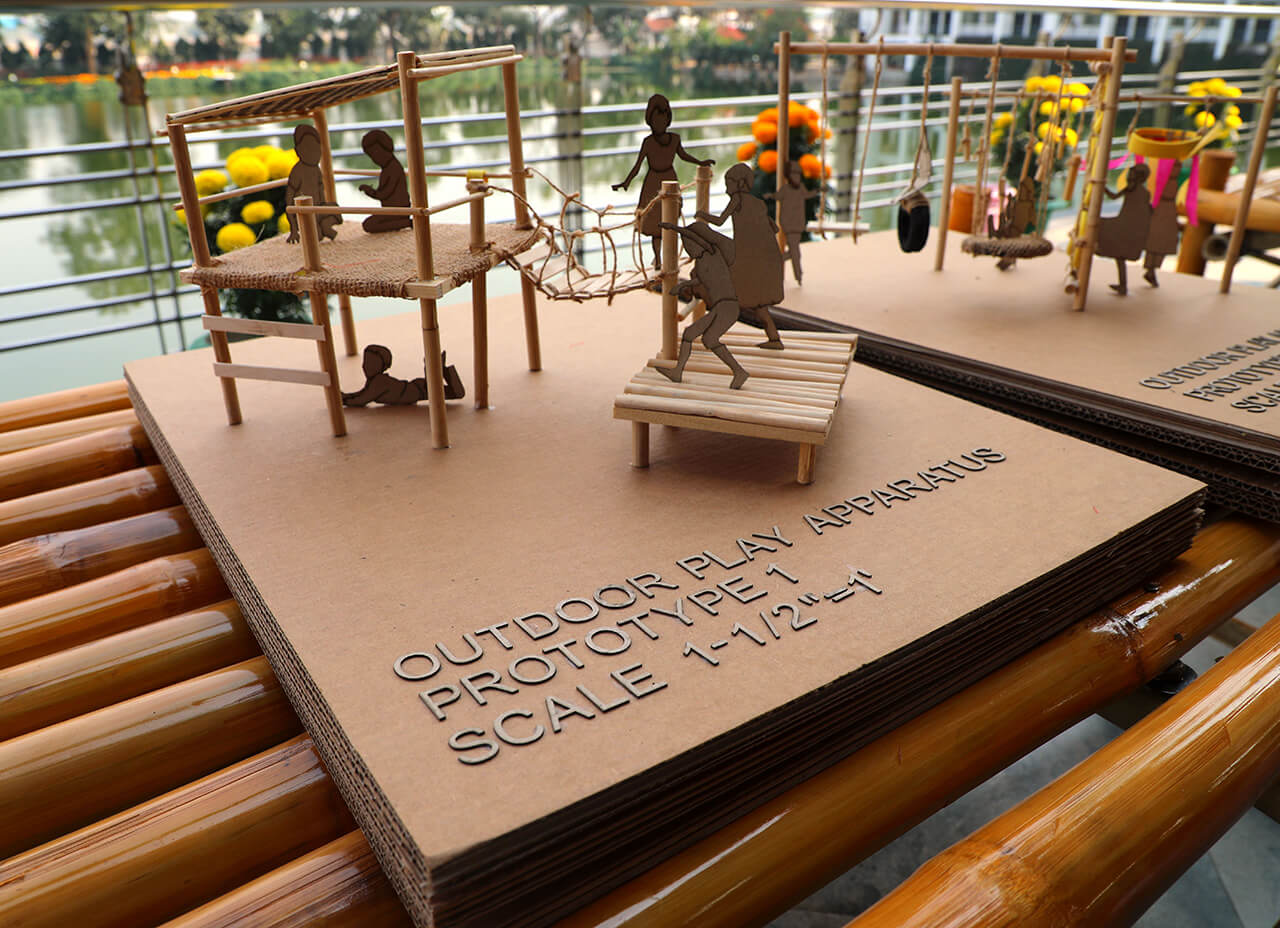
In August 2017, almost a million Rohingya fled to Bangladesh from violence and persecution in Myanmar. Among them, 55% were children, many of whom were torn from their families, and have seen more violence than most adults would in a lifetime. Research shows that play has the power to heal trauma. So, BRAC has developed a play-based solution called the Humanitarian Play Lab (HPL) model to help refugee children learn and recover from trauma.
On Tuesday (February 5, 2019), the BRAC Institute of Educational Development officially launched the HPL at the Play Summit 2019 held at BRAC CDM in Savar near Dhaka. With the slogan “Play to Heal, Play to Learn,” participants discussed the role of play in the early years of a child’s life, and how this model could be replicated in low resource and humanitarian settings. Mohiuddin Ahamed Talukder, deputy director of the Directorate of Primary Education, and Lesley Patricia Holst, initiatives lead of LEGO Foundation, were present among others.
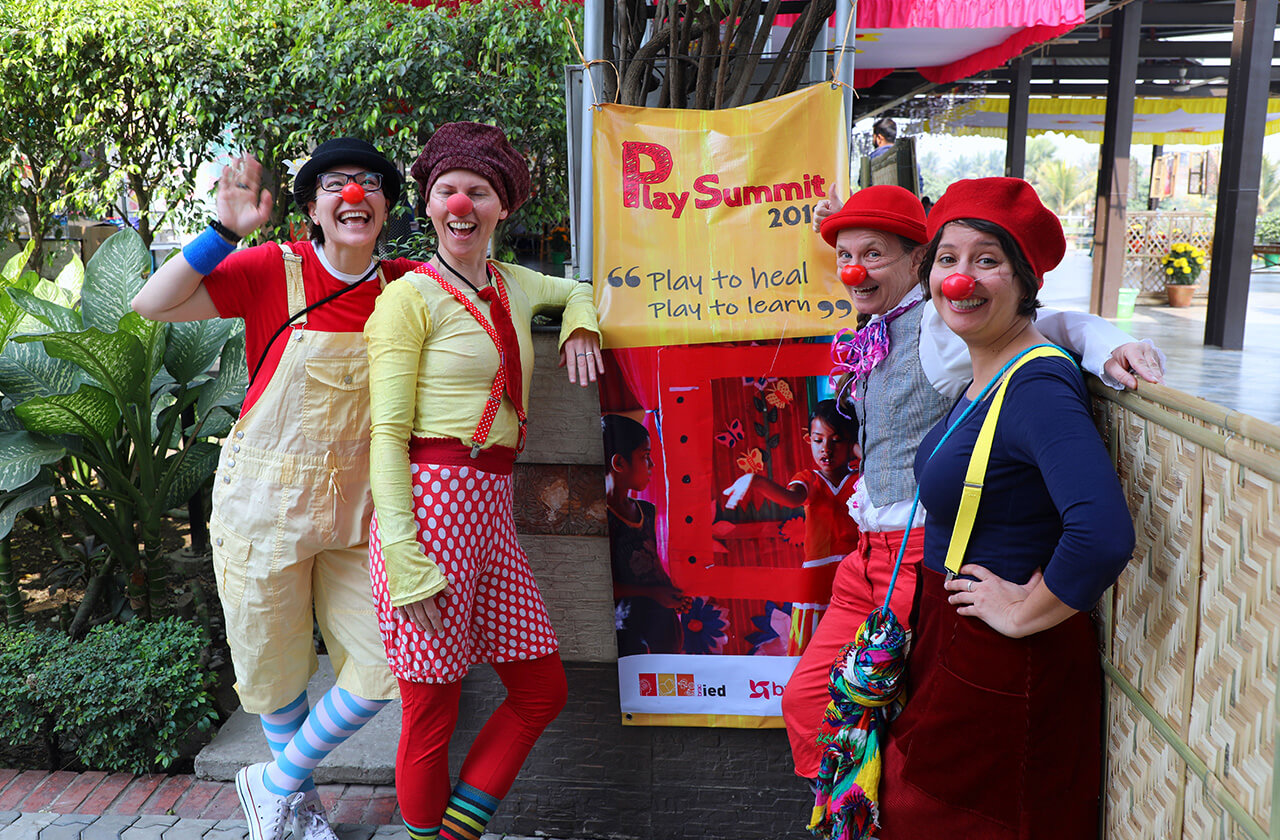
“The Humanitarian Play Lab model is a repurposing of the Science of Play for settings troubled by humanitarian crisis. Learning through play portrays children as being empowered and upholds their dignity. It provides them with comfort, happiness and pride as they play with toys, engage in physical play, recite and chant,” said Dr. Erum Mariam, Executive Director of BRAC IED.
HPL caters to children aged 0-6. The spaces have been designed around the memories of home of the Rohingya children. The BRAC IED team, women, adolescents and children have worked together to design the spaces with motifs and paintings significant to Rohingya culture. More than 40,000 Rohingya children have played and learned at the 250 BRAC play labs since 2017.
BRAC has been promoting play as a learning tool since 2015 by developing and implementing the renowned Play Model in active collaboration with the LEGO Foundation. The model incorporates play-based learning in its curriculum and is implemented over 300 play spaces across Dhaka. BRAC’s HPL model is an adaptation of the Play Model developed by LEGO Foundation.
BRAC wins prestigious SAFA Award for best presented annual report
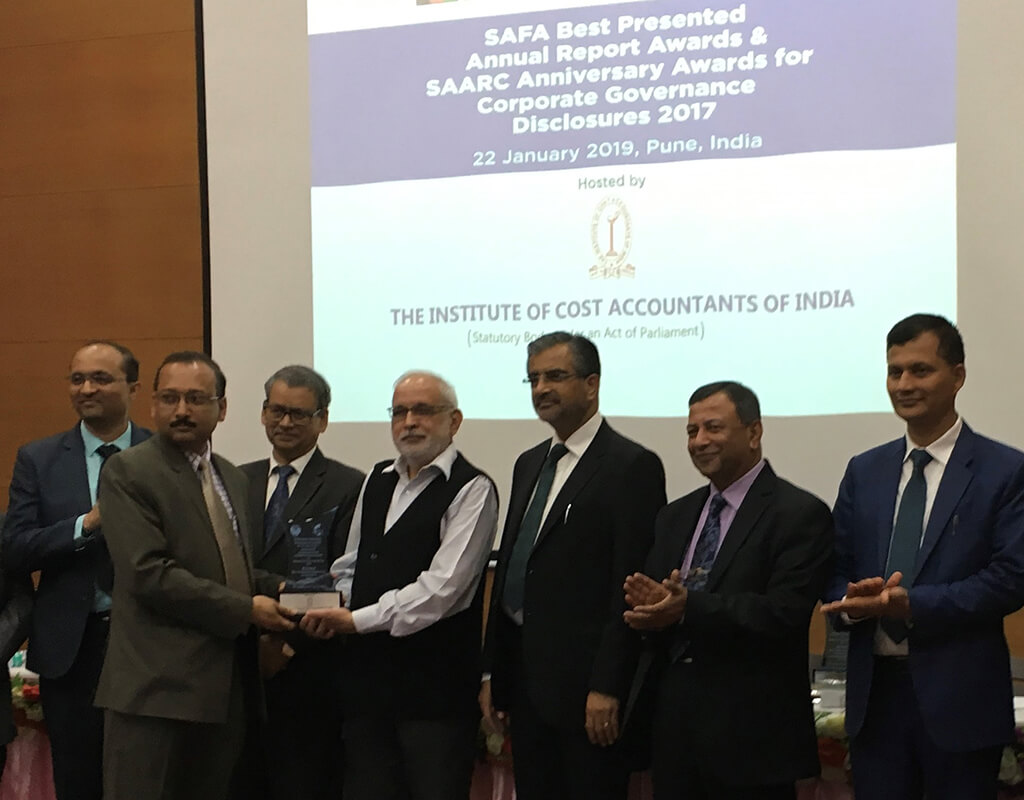
BRAC, the number one NGO in the world, has won the prestigious South Asian Federation of Accountants (SAFA) award 2017 for best presented annual report in the non-governmental organisation category. The award was handed over to BRAC at a ceremony in Pune, India on Tuesday (January 22, 2018). Tushar Bhowmik, director of BRAC’s finance department, received the award.
SAFA is a federation of organisations of accountants from all the eight SAARC (South Asian Association for Regional Cooperation) countries.
“BRAC regularly follows standard requirements in carrying out audit of its financial matters. Our objective is to ensure organisational accountability through full disclosure. We have strong corporate governance, which plays a key role in preparing a highly standard financial statement,” said Tushar Bhowmik, BRAC’s finance director, after receiving the award.
The selection for this award was made on the basis of an assessment of transparency, accountability and good governance. Last year, the Institute of Chartered Accountants of Bangladesh (ICAB) awarded BRAC for its annual report. ICAB then sent the report to SAFA to compete with the annual reports of NGOs and NOPs from other SAARC countries. BRAC was nominated for the award following an assessment of all the entries in this category.
BRAC Sierra Leone receives 2018’s “Most Outstanding NGO Award”
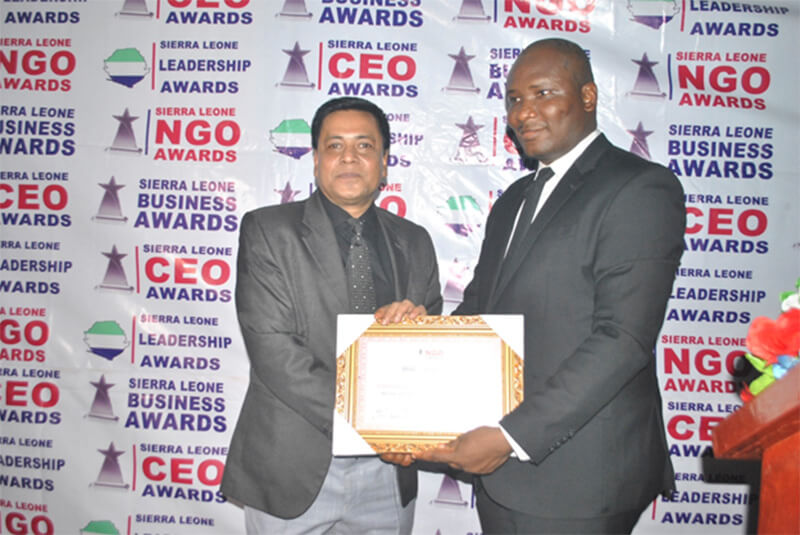
BRAC Sierra Leone has been awarded “The Most Outstanding NGO of the year - 2018,” by a consortium of national and international organisations (Council of Chief Executives in Sierra Leone, EcoMedia Corporation, Africa Media Corporation, Institute for Public Affairs and Good Governance, and the African Consulting group).
Since its inception in 2008, BRAC Sierra Leone has proved to be one of the leading international development organisations operating in Sierra Leone. The award comes in recognition of of the organisation’s demonstrated support and commitment through professional services, best practices, dynamic programmatic interventions, innovation, effectiveness, and sound principles.
Rakibul Bari Khan, Country Representative of BRAC Sierra Leone, described the award as a great honour and recognition of BRAC’s support towards the development of Sierra Leone. “The recognition is a reminder of what we are, and as an organisation, I must say, this is very overwhelming, timely, and useful. We intend to use this award to reaffirm our commitments to the government and the people of Sierra Leone,” he said.
Peter Sasellu, Chairman of the Council of Executives, described BRAC as an organisation that has presence and significant impact in most, if not all the districts in Sierra Leone. “I came to know about BRAC when I was in Liberia. BRAC has impacted the lives of millions of people in the African and Asian continent. It is one of the NGOs that I’m really proud of; their impact in the lives of our community’s people is very outstanding,” he added.
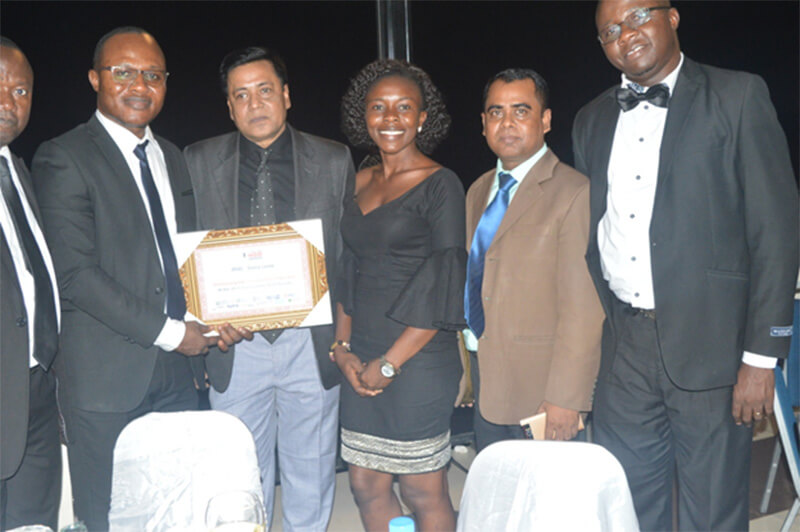 BRAC Sierra Leone staff members at the prestigious award ceremony
BRAC Sierra Leone staff members at the prestigious award ceremony
Lessons learned from the Jibika project
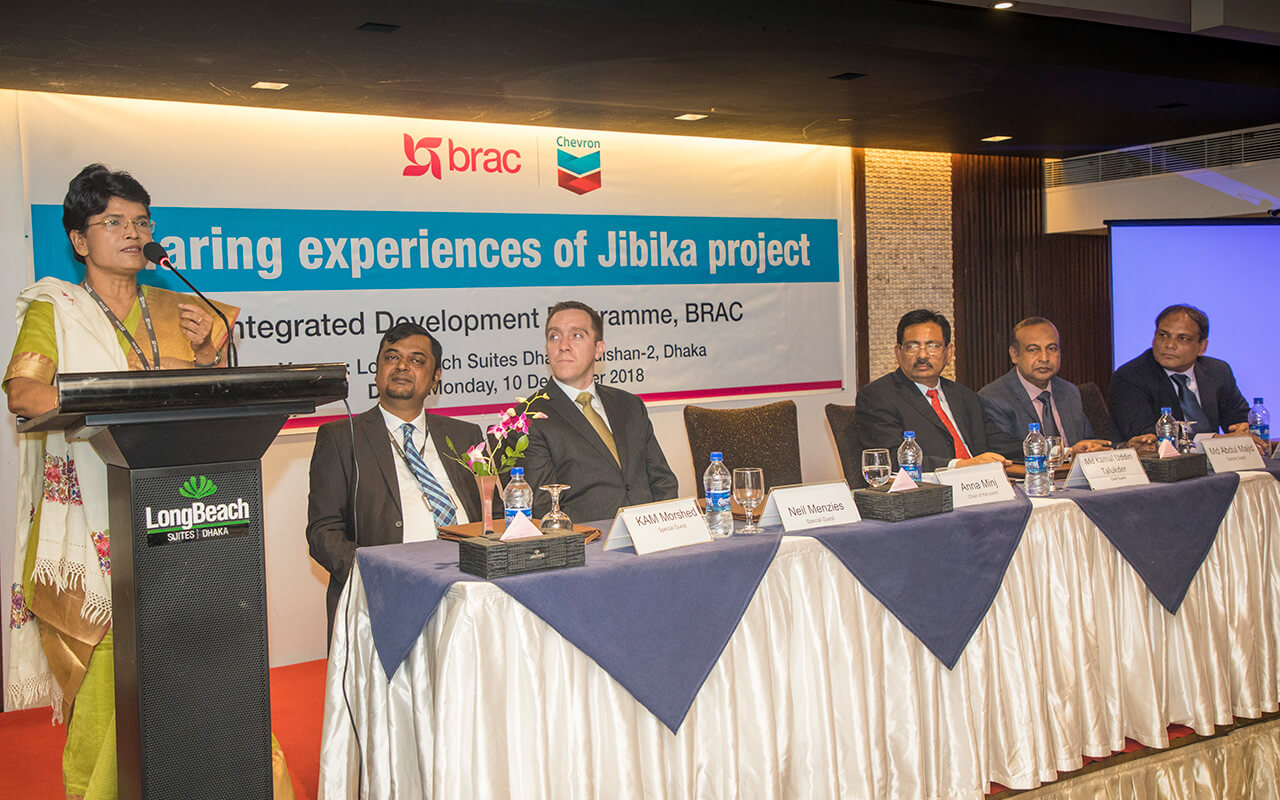
The Jibika project, a collaboration between BRAC and Chevron, implemented under BRAC’s integrated development programme, held an experience sharing event on Monday, 10 December 2018 at Dhaka to share the learnings and experiences of the three-year long project.
Md Kamal Uddin Talukder, Secretary of Rural Development and Cooperatives Division, Ministry of LGRD and Cooperatives, was present as the chief guest. Md Abdul Majid, Registrar and Director General, Department of Cooperatives, Ministry of LGRD and Cooperatives; Neil Menzies, President, Chevron Bangladesh; Ismail Chowdhury, Director, Policy, Government and Public Affairs, Chevron Bangladesh, and KAM Morshed, Director, Advocacy for Social Change, Technology and Partnership Strengthening Unit, BRAC attended as special guests. Anna Minj, Director, Community Empowerment, Integrated Development, Gender Justice and Diversity Programme of BRAC presided over the event.
Mr Talukder lauded the collaboration between BRAC, the largest development organisation in the world, and Chevron, Bangladesh’s largest international oil company, working together for the socio-economic development of vulnerable communities residing in Chevron’s areas of operation in northeast Bangladesh. President of Chevron, Neil Menzies thanked the Jibika project and the government cooperative department for their contribution in socio-economic development through the institutionalisation of community organisations.
KAM Morshed, Director, BRAC, emphasised on the value chain system and enterprise development of the community through the Jibika project, mentioning that this model can be replicated in other regions of the country, especially for the vulnerable people of the haor area.
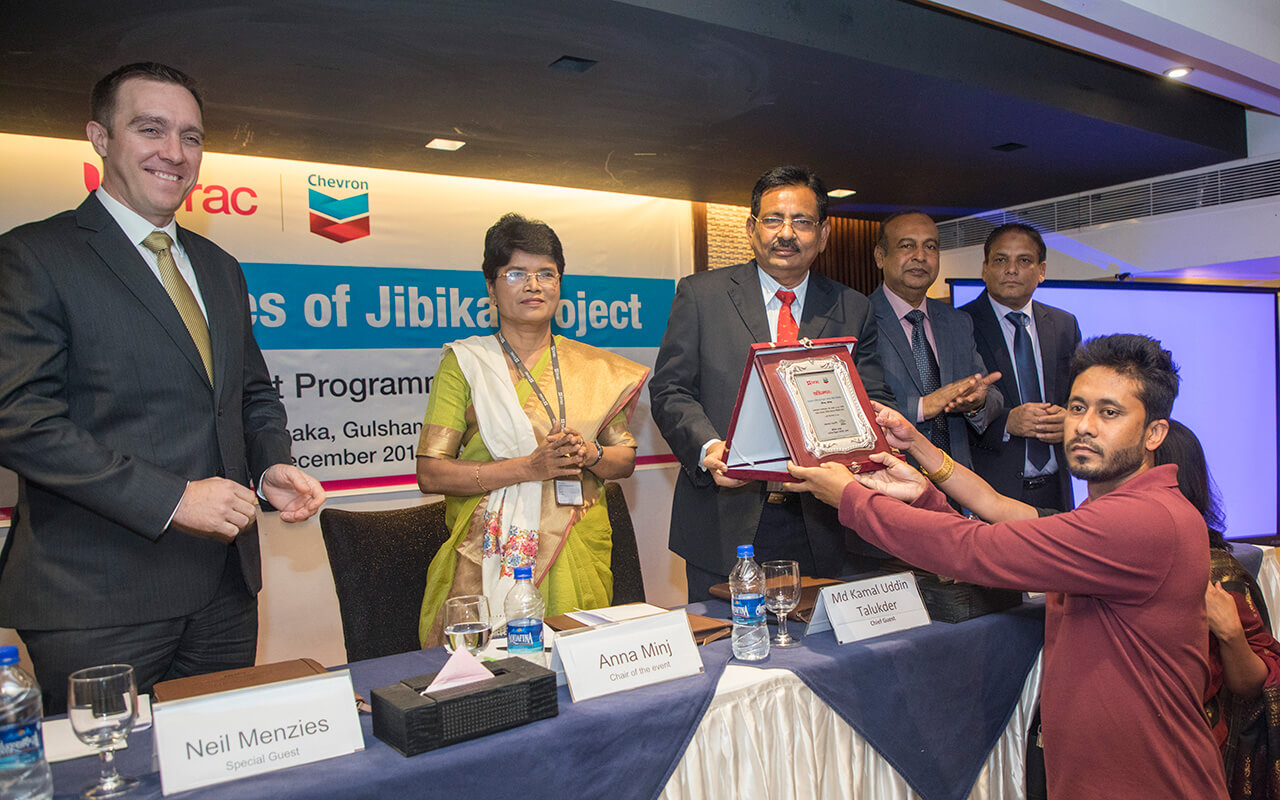
Jibika project participant Taslima Begum, President, Uttor Baluchar Zonaki Kornofuli Sharbik Gram Unnayan Shomobay Shamiti, said that the trainings and knowledge gathered from the BRAC-Chevron and IDEA’s Jibika project has helped her and other community to learn how to operate a village development organisation, how to improve enterprise through new technology, market system, and linkage with service providers. She thanked Jibika for improving her and other women’s lives of the community.
Besides sharing stories by the Jibika project participants, the Jibika model was displayed, along with a stall representing the Jibika VDO. A documentary showed two village developments, namely Amukona Village Development Organisation and Kashba Village Development Organisation from Nabiganj upazila of Habiganj district, for their recognition as best VDOs from the government cooperative for the year 2018.
The Jibika project was designed to develop local institutions and promote entrepreneurship for sustainable income growth of the marginalised farming households around the Chevron-operated gas fields in Sylhet, Moulavibazar, and Habiganj districts. Jibika’s economic development activities are steered through 112 community-based organisations known as village development organisations (VDO). IDEA, a Sylhet-based NGO has been working with BRAC as its implementing partner. About 20,000 people have benefitted since the implementation of Jibika three years ago.
More...
Join the world’s biggest family

